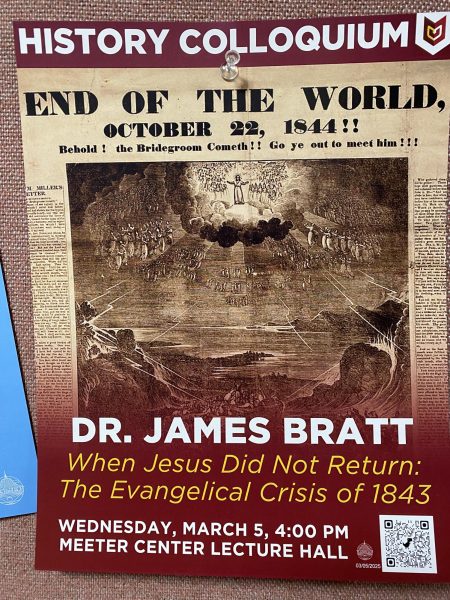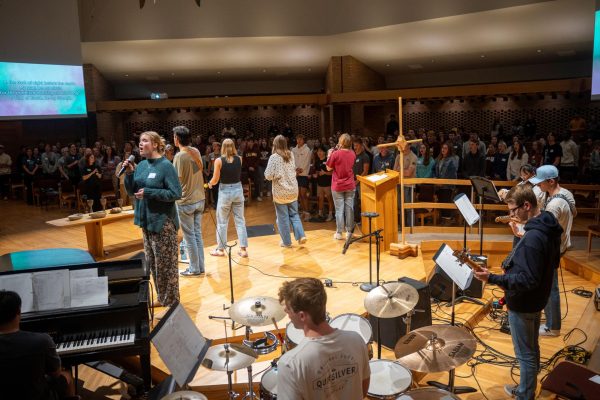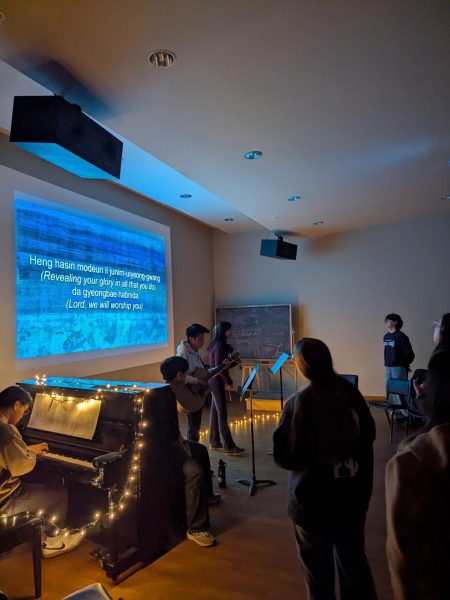Hazing at Wheaton raises questions for Christian colleges
Five senior Wheaton College football players were issued arrest warrants for felony counts of aggravated battery, unlawful restraint and mob action last week — reigniting the conversation about sexual assault and hazing at Christian institutions.
According to the Chicago Tribune, “authorities said a freshman teammate was restrained with duct tape, beaten and left half naked with two torn shoulders on a baseball field” in 2016. Two of the accused students, Noah Spielman and Kyler Kregel (a Grand Rapids native), have turned themselves in and posted bail. News sources expect the remaining three players to do the same, and they anticipate that all five will plead “not guilty” at their arraignment hearing on Oct. 23.
In the wake of the news, many have called upon Wheaton College and other Christian institutions — including Calvin — to ensure that hazing becomes unacceptable within their sports cultures. The investigation’s lengthy timeline (Wheaton concluded its own investigation much earlier than local law enforcement) has sparked particular controversy, as some, including some of the accused players, believe the charges unnecessarily inflate an already-addressed situation. Others, including the victim, expressed their frustration with the system’s execution of justice, and many voiced their anger in one-star reviews of the college on Facebook.
“How could it take a ‘Christian’ institution of higher learning a year to have five students formally charged for the brutal hazing of an innocent young man?” wrote one commenter.
Unlike Wheaton College, Calvin does not ask its student athletes to sign an anti-hazing document (though hazing is prohibited in Calvin’s student conduct code). The athletic department begins its work against all forms of separation and at the Gainey Leadership Retreat, where student athletes learn to lead their teammates both on and off the field.
“[The retreat] has had a huge impact on the culture of athletics at Calvin, and that’s unique. It’s something I haven’t seen other places I’ve gone,” said Sarah Visser, Calvin’s vice president for student life. “It really is looking at leadership not just in terms of… outcomes of an athletic team.”
During Calvin’s weeklong program at Montana’s Gainey Ranch, retreat coordinators stress that many harmful actions, not just hazing, can result from the pattern of excluding younger or less experienced players.
“We stand against all forms of hazing,” said James Timmer, Calvin’s director of men’s athletics. The work of inclusivity continues into the season with the ‘all-athlete meeting’, as well as continual check-ups with coaches on potential issues.
“What we want to do with our teams -it’s not going to be perfect- is we don’t want to separate our freshmen out. There’s tons of things that separate freshmen out already. The teams that are successful — and what I mean by that, not just win, but that person has a great experience — are the teams in which those lines are washed away.”
But Timmer recognizes that this inclusive attitude must be embraced on a personal, not just institutional, level.
“What keeps athletic directors and coaches awake at night is the personal culpability. At the end of the day, we’re not with [athletes] 24 hours, seven days a week.”
When the college must address misconduct of any kind, the student conduct office takes over a case, bringing the investigation outside of the athletic department.
Visser explained the college’s approach to punishments and consequences:
“Institutionally, what we’re trying to do is balance accountability with development. … Forgiveness is forgiveness, but repentance is looking really hard at what you’ve done. Sometimes that means separation from the college. Sometimes that means restorative justice. But always — this is very Reformed — always renewing, always working for that biblical redemption.”
The Wheaton case initially included allegations of sexual violence, and last Friday Calvin re-released a campus survey on sexual violence to gauge its own student perceptions and experiences.
“It’s been in the works for a long time, and the release day happened to be in the same week [as the events at Wheaton],” said Visser.
Though the survey, returning students and recent graduates can reflect upon their experiences from before college as well as from college life. The results of the survey will aid the college’s growth on both individual and institutional levels, allowing students, staff and faculty to take ownership of their own cultural roles and decisions.
“For every step that we take, there’s always more work to be done,” Visser said. “This is something that we remain very committed to.”









